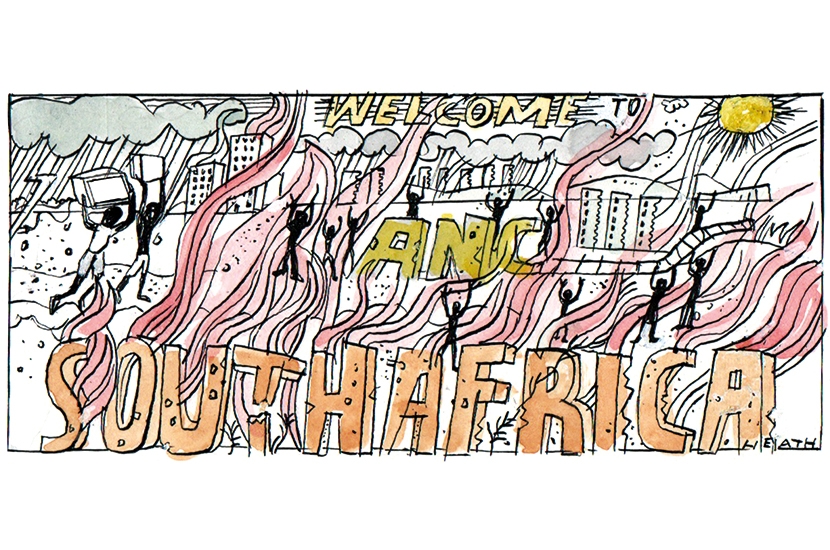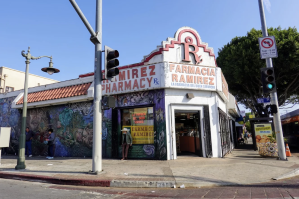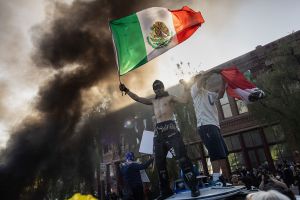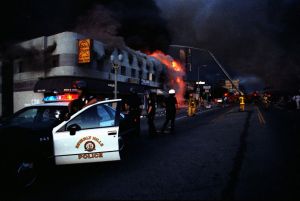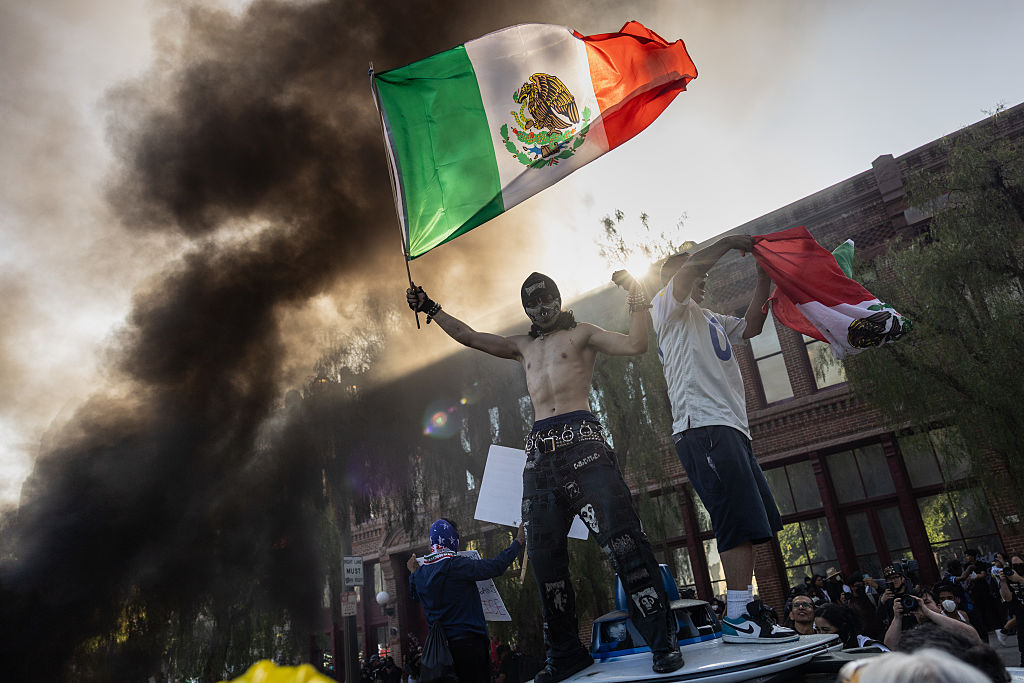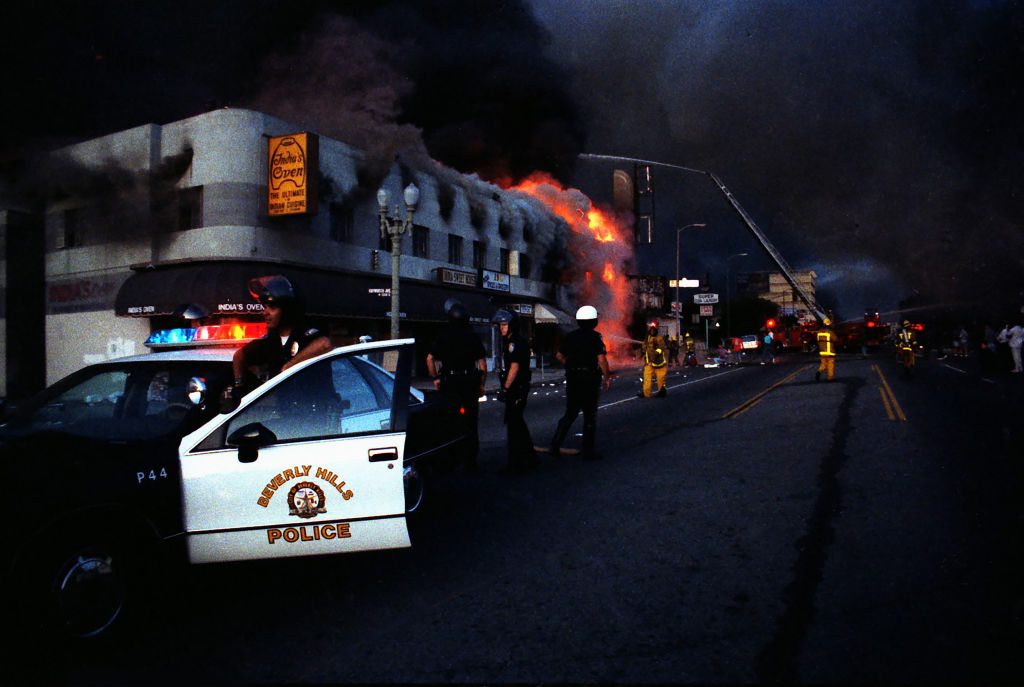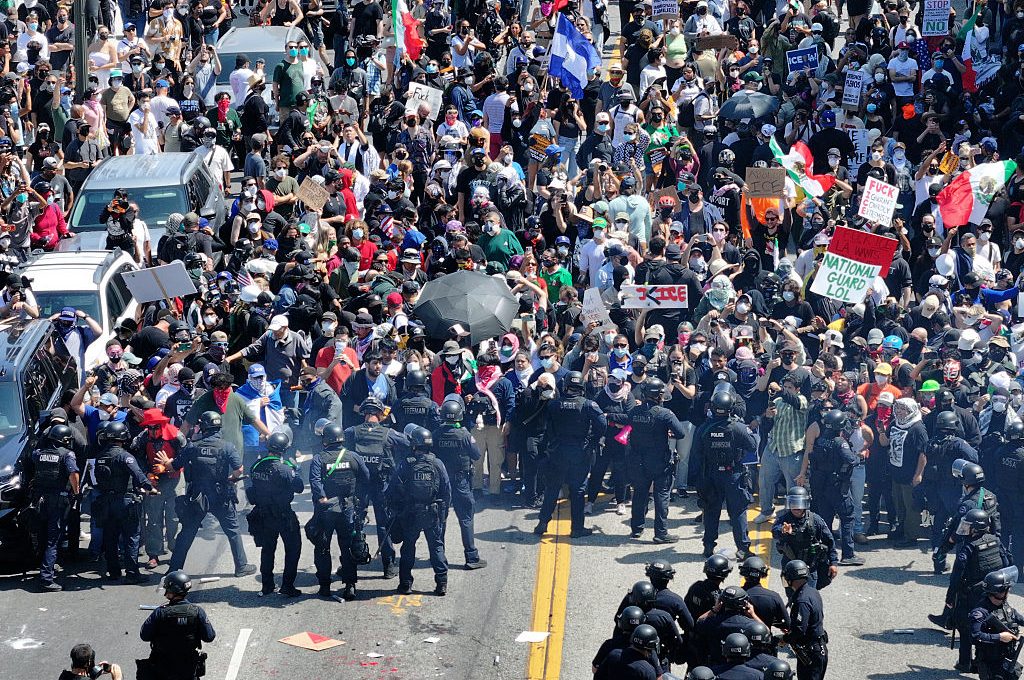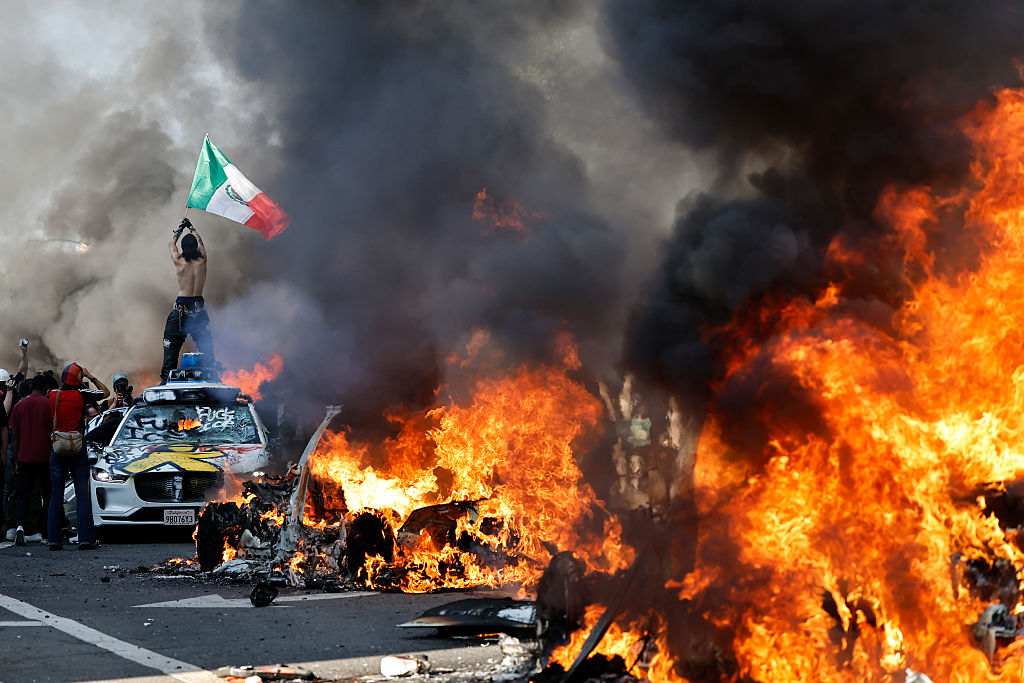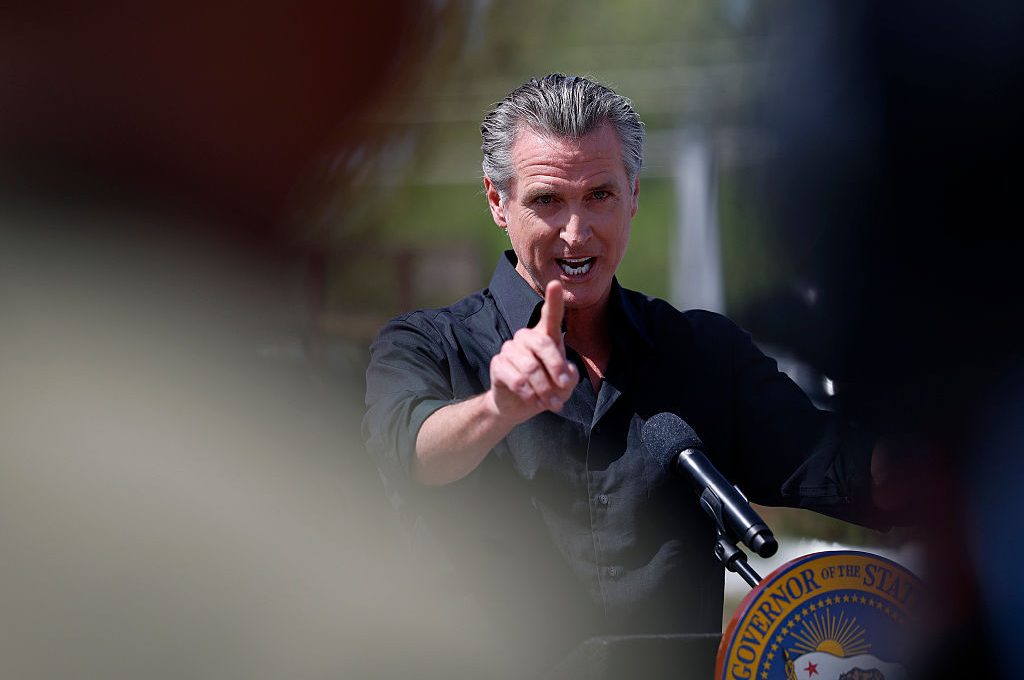Sixty-eight years ago, when I was four, my Scottish father and English mother took me from London to South Africa, to a seaside town 20 miles south of Cape Town in the Western Cape. This is Fish Hoek (pronounced ‘fishhook’). I was brought up here, and after working in England and elsewhere in South Africa, I have returned. I have lived through the rise and fall of apartheid, and the 27-year rule of the ANC. I watched the terrible recent events, which seem to have subsided. We are sifting through the ruins and wondering what happened, and why. South Africa has nine provinces. Two of them, KwaZulu-Natal (KZN, formerly Natal) and Gauteng (with Johannesburg and Pretoria), have been devastated by violent riots. More than 300 people have been killed and more than 50 schools in KZN have been ransacked; thousands of shops, including big, insured, white-owned supermarkets and small, uninsured, black-owned stores, have been destroyed; pharmacies and clinics have been attacked and trucks and buses have been set on fire. The main highway from Johannesburg to Durban is often simply closed. The damage now amounts to billions of rand. Only bookshops seem to have escaped the looters, which might tell us something. Shops selling TVs, smartphones, freezers, furniture, designer clothes and luxury goods have been less lucky.
The nominal cause of the riots was the arrest and imprisonment of Jacob Zuma, our president from 2009 to 2018, a charming man with powerful supporters and the most corrupt leader in South Africa history. We were told the riots were in his name, but I saw very few pro-Zuma placards. In fact, there were almost no placards at all. Instead, there seem to have been more immediate causes: desperate need and greedy opportunism; political and racial rivalry. Murderous faction-fighting within the ANC was doubtless a factor, especially in KZN, where assassination of political rivals has become an administrative procedure. One KZN journalist wrote: ‘Politicians in Durban walk around with hit lists in their back pockets … a hitman can be hired as easily as we hail e-rides. A simple trip to the taxi rank gets you an inkabi — or hitman — as long as you have R5,000 to pay.’ But if there are many immediate causes of the rioting, there is only one profound cause, which is the failure of the ANC to improve the lives of ordinary black people.
In 1994 the ANC inherited the strongest economy in Africa, with excellent infrastructure, including cheap, reliable electricity. The ANC has wrecked it all. We have continual blackouts; the passenger railways are crumbling into ruin; most of the municipalities are dysfunctional, with appalling water supply and sewage running in the streets; South African Airways is bankrupt; the economy is crippled; deep poverty is widespread, and unemployment is at 43 percent (including many who have given up looking for work). This tragedy has been caused by systematic corruption, a bloated government, ruinous racial laws and a relentless assault on private enterprise. Violent crime alarms the rich and terrifies the poor. The ANC government responded to COVID-19 with a clumsy and callous lockdown. A team of actuaries showed that many more South African lives would be lost by the lockdown than by the virus. The ANC ignored them. The country was a tinderbox waiting for a spark.
In Cape Town we have escaped this rioting but been victim to a different source of violent death: taxi wars. Here, 82 people have been slaughtered this year for using a rival taxi company’s transport. As little boys in the 1950s, we used to travel safely by train from Fish Hoek to Cape Town. The Cape Town to Simonstown line, a scenic engineering marvel, was completed in 1890 and served well for a hundred years. No more. The railway lines are now dilapidated, unreliable and dangerous or completely defunct, and black people living in townships established by apartheid far from the city must find other ways to get to work.
In the last years of apartheid, to cater for these people, a network of private, black-owned minibus taxis sprung up. Unfortunately this welcome triumph of free enterprise has become infected with organized crime. Each company claims a particular route as its monopoly and kills any rival drivers who use it. The taxis shoot at buses. Uber drivers are in peril. Any Cape Town companies that provide their own transport for staff risk their lives. When I go to Cape Town airport, my driver (in an unmarked private car) asks me to sit in front because if I sat in the back, I might look like a paying passenger. On the way to the airport, I see spectacular natural beauty, graceful manors and festering, crime-ridden slums. Such is the South African paradox.
This article was originally published in The Spectator’s UK magazine. Subscribe to the World edition here.



